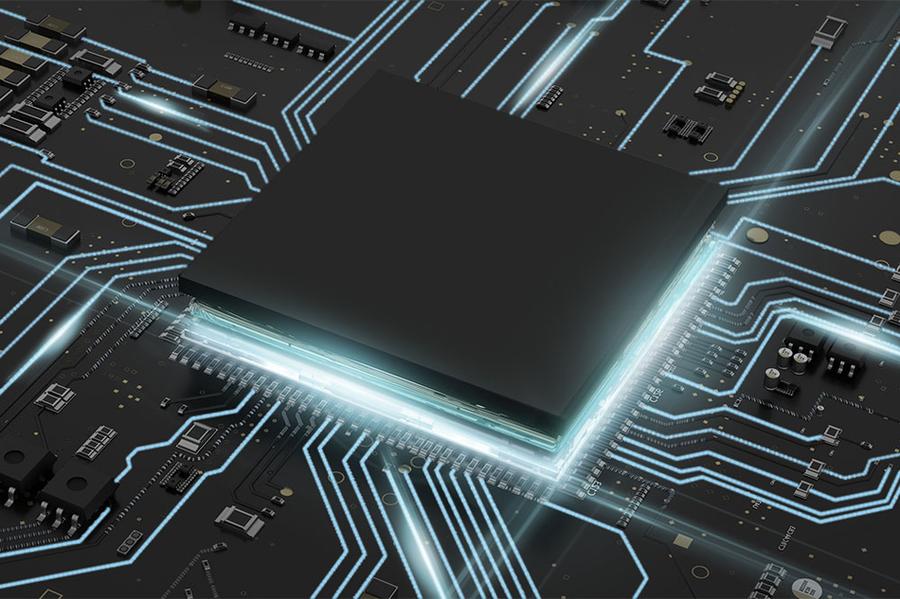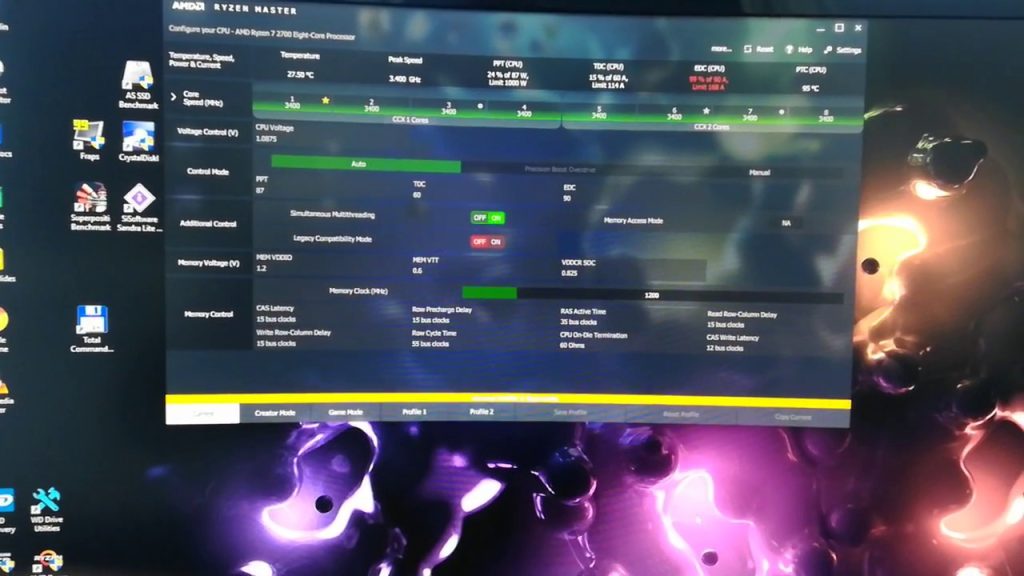What Is EDC CPU? – Why Is It At 100% Know In 2023
It stands for Electrical Design Current. EDC is the maximum current amount at any time the voltage regulators can deliver.
This value is important for the CPU as it ensures it is not overloaded with too much power, which can cause damage.
EDC is also used to determine the power requirements for the CPU, ensuring it is not underpowered and can run at its full potential.
EDC is important when building a computer, as it ensures the CPU is not put under too much strain and can run efficiently.
How EDC Affects PC Performance:
A PC’s Electrical Design Current (EDC) measures the maximum power it can draw from its CPU. A low EDC range is rarely a bottleneck for a PC, as it can draw enough power to run most applications.
However, a higher EDC setting has the potential to draw more power from the CPU and thus provide better performance. Unfortunately, this also puts the PC under an unnecessary amount of stress and can lead to instability.

Therefore, it is usually ill-advised to set the EDC too high. In your PC’s BIOS, you can change the EDC settings to get the optimal performance.
What Affects EDC:
Some things affect your system’s EDC, but the power plan is usually the most significant. Your EDC is the pool of power you draw to run your system.
This means that the amount of power available to your system is directly affected by the power plan you have in place. If the power plan is set to a higher level, then more power will be available to your system, increasing your EDC.
Conversely, if the power plan is set to a lower level, then less power will be available to your system, decreasing your EDC.
Ultimately, the power plan you have in place will significantly affect your EDC and should be taken into account.
How to Choose the Right EDC CPU:
Regarding technology, speed and performance are always important, particularly when choosing an EDC (Embedded Digital Computer) CPU (Central Processing Unit).
The right processor is essential for any EDC system to run smoothly and efficiently. But with so many options available, it cannot be easy to know which is right for your application.
Before you start shopping for an EDC CPU, it’s important to consider your system requirements.
Determine what type of performance you need and what types of workloads you’ll need to run. This will help you narrow down the range of available processors.
Battery Life of EDC CPU:
As users of electronic devices, we all know the importance of battery life and understand why it is important to conserve and maximize battery life.
In today’s modern world, having a reliable and long-lasting battery is essential, especially when it comes to EDC CPUs or everyday carry Central Processing Units.
EDC CPUs are typically portable computing devices designed to be lightweight and compact. They give users the same power and performance as larger laptops but in a much smaller form factor.
This makes them ideal for carrying with you wherever you go, as you can always stay connected and productive.
However, this convenience comes at a cost; EDC CPUs are often more power-hungry than their larger counterparts,
Should I Raise My EDC?
When it comes to whether or not you should raise your EDC, the answer is generally no. A low EDC range is rarely a bottleneck for a PC, even though a higher EDC does have the potential to draw more power from a CPU.
However, this extra power is usually unnecessary and can put a PC under unnecessary stress. It is best to leave the EDC settings at their default values, as they are usually set to optimal levels.

In the BIOS of your PC, you can change the settings of your EDC. However, unless you are an experienced user and know exactly what you are doing, it is best to leave the settings as they are.
What is the Performance Impact of EDC on Ryzen CPUs?
With the introduction of Ryzen CPUs, the performance impact of EDC (Electronic Device Components) has been significant.
EDC is a type of technology that helps improve the performance of CPUs and other electronic devices.
It helps to reduce power consumption, increase the clock speed, and improve overall performance. What is particularly interesting about EDC is its impact on Ryzen CPUs.
Ryzen CPUs are known for their exceptional performance, and with the help of EDC, their performance is further enhanced.
What is EDC, and why is it at 100%?
It is typically expressed as a percentage of the maximum current the board can handle, with 100% being the maximum current. EDC is used as an indicator of how much current the board can handle rather than a warning.
For example, if the EDC is 99% of 90A with a 180A max, the board can handle up to 90A of current with an absolute maximum of 180A.
EDC is an important measure of the board’s current capacity, and it is important to ensure that the EDC is kept within the recommended range to protect the board from damage.
Why Ryzen Master EDC is at 99% not overclocked:
It is a great choice for those looking for a processor that can handle various tasks without having to overclock.
The reason why Ryzen Master EDC is priced at 99% and not overclocked is that it is designed to provide reliable performance at a reasonable price.
It is also designed to provide improved power efficiency, which helps reduce ownership costs.
Additionally, the processor is designed to be compatible with a wide range of motherboards and other components, making it a great choice for those who want to build a custom gaming PC.
Why is my EDC (CPU) running at 99%, and how do I fix this?
This can be caused by various issues, such as insufficient RAM, outdated drivers, or a corrupted hard drive.
To fix this, you need to identify the root cause of the problem and take the necessary steps to resolve it.
This could include updating the drivers, increasing the RAM, or replacing the hard drive.
You can always refer the customer to a professional technician if you need the necessary technical knowledge.
Conclusion:
So, EDC represents the peak current that the Voltage Regulator Modules (VRMs) can handle in the short term. In simpler terms, it is the maximum amount of current that the voltage regulators can deliver at any given time.
EDC CPU is important to consider when selecting a motherboard, as it will determine how much power can be safely used by the components in the system.
It is also important to consider the cooling system of the motherboard, as it will need to handle the amount of current that the EDC CPU allows.
Related Posts:






